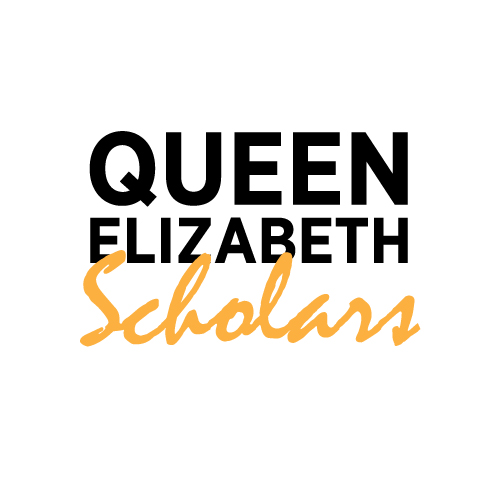Want to better understand how the health and social systems work and how you can better advocate for changes that would improve these systems for you and your family? Enhance your knowledge with one of our free courses for citizens:
Finding and using research evidence: A guide for citizens
In this free online course, you’ll be provided with solutions to overcome the most commonly cited frustrations people have when trying to access research evidence. Prepared by the McMaster Health Forum with support from the Ontario SPOR SUPPORT Unit, the course is now available online as a set of eight videos:
Here are helpful resources that are drawn on in the course:
- Definitions for word and phrases used in the modules
- How to make sure health information is trustworthy
- Links to online sources mentioned in the modules
Don’t miss the most important resource for citizen-targeted evidence about healthy aging:
Understanding how to navigate the health system
Knowing how your health system works will better you to navigate the system, identify opportunities to make things better, and advocate for changes that you’d like to see. This free online course describes the 'building blocks' of Ontario’s health system as well as how those building blocks are used to provide care in the province in different ways (e.g., by sector, condition, treatment, population). While Ontario is the example, these principles are useful to understanding health systems other jurisdictions in Canada and internationally.
Prepared by the McMaster Health Forum with support from the Ontario SPOR SUPPORT Unit, the course is now available online as a set of six videos:
Here are helpful resources that are drawn on in the course:
- Free download of chapters from Ontario’s Health System: Key Insights for Engaged Citizens, Professional and Policymakers. The Ontario book is also helpful in understanding other health systems
Don’t miss the most important resource for citizen-targeted evidence about healthy aging:
Masterclass on patient-oriented research
The Forum’s masterclass was designed to prepare future champions for the conduct and use of patient-oriented research and future mentors to others becoming involved in the conduct and use of patient-oriented research. While we are not currently planning any sessions for the masterclass on patient-oriented research, you can access all of the course material to learn more about patient-oriented research.
Exciting opportunity to learn abroad & earn McMaster academic credit
Are you a McMaster student interested in health systems and policy? Interested in learning abroad while still earning academic credits at McMaster? Apply now for a Queen Elizabeth Scholarship in Strengthening Health Systems as spots are limited.
The McMaster Health Forum’s Queen Elizabeth Scholarship (QES) program provides the opportunity for McMaster students to work with our partners around the world, while still earning academic credits towards their degree. Before you register for your Fall/Winter courses, here are a few things you should know about the QES experience.
- Master’s Students have the opportunity to pursue scholarly work toward their thesis or undertake experiential work, applying what they have learned in a international setting. Why not collaborate with our Commonwealth academic partners?
- For BHSC Students, the QES experience can help:
- Fourth year students earn academic credits for their thesis project (required in order to graduate with honours degree). Learn more about some of our international partners.
- Third year global health students earn academic credits for HTHSCI 3A15, the embedded learning experience. This course aims to immerse a student in a new academic environment)
- Third year mainstream students (HTHSCI HTH SCI 3H03, 4B06, 4A09, 4A12, 4A15, 4D06, 4D09, 4D12) - who choose to push one of their mandatory courses to fourth year and do a semester long thesis
- For all candidates, the QES experience can also count towards other course credit.
Successful applicants will be eligible to receive up to $5,500 to help cover living expenses and travel expense that are directly related to the scholarship.
>>The application deadline for a start date in the Fall 2016 semester is July 8, so apply now!
Eligible McMaster programs from which applicants can be drawn include the Health Policy PhD program, Health Research Methodology MSc or PhD program, Master of Public Health program, Global Health MSc program, eHealth MSc program, and BHSc program (outgoing interns only).
Outgoing interns and scholars will have the opportunity to contribute to strengthening health systems in any of 20 Commonwealth countries – ranging from Australia to Zambia – where we, and our partners, have robust relationships focused on health-system strengthening. Scholars will become part of our large and growing network of health-system leaders. Successful applicants will be eligible to receive up to $5,500 to help cover living expenses (approximately $4,000 for food, accommodation, health insurance and an installation allowance) and travel expenses (approximately $1,500 for return airfare and visa costs) that are directly related to the scholarship. The minimum period to be spent in the host country is 90 days. In addition to financial support, Queen Elizabeth Scholars will benefit from remarkable training, mentoring and networking opportunities.
Contact us at mhf@mcmaster.ca to learn more about the Queen Elizabeth Scholarship in Strengthening Health Systems.

- McMaster Forum

